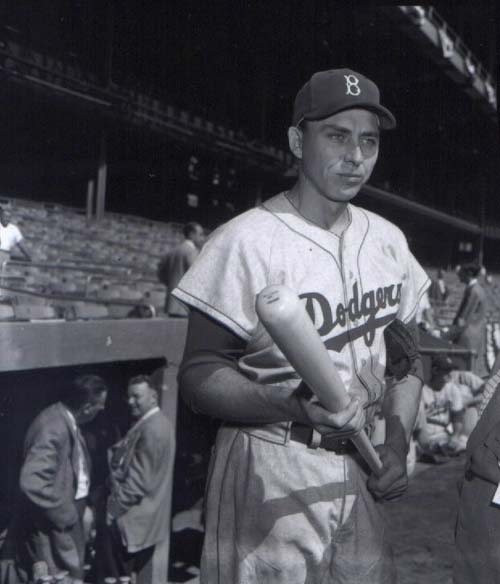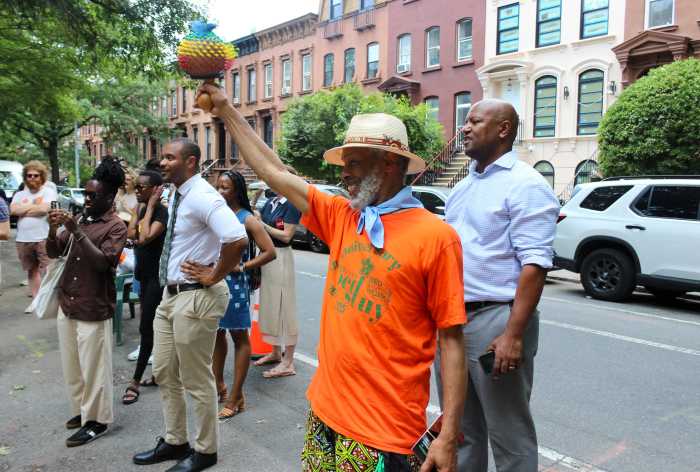Gil Hodges, the wildly popular power hitting first baseman from the Brooklyn Dodgers, was once again denied enshrinement in the National Baseball Hall of Fame, officials announced this week.
Hodges was named on 28 of the 64 ballots, 20 short of the number necessary for election to the Hall for post-1942 players.
The results of the balloting by two Veterans Committees were announced at baseball’s winter meetings on Dec. 8. One committee considering players whose career began before 1943, the other looks at post-1943 players.
“I was absolutely devastated with the news,” Hodges’ widow Joan told this newspaper. “I was shocked.”
For years, Joan, 82, who lives on Bedford Avenue–on a stretch known as Gil Hodges Way, also home to P.S. 193, the Gil Hodges School–has been holding on to the hope that her husband would be elected to baseball’s most exclusive club.
Through anxious excitement to bitter disappointment, she remains steadfast. “I will never stop, not as long as I live,” she said.
Since the news was announced, former players, friends, and family have all reached out to empathize.
“People have been so kind,” she said.
Hodges, a lifetime .273 hitter, collected 1,274 runs batted in, smacked 370 home runs and amassed 1,921 career hits.
His home run total is only nine less than Hall of Famer Tony Perez–despite having 2,758 fewer at bats, according to Major League Baseball. As a member of the Brooklyn Dodgers’ Boys of Summer, he had over 100 RBIs every season from 1949 to 1955.
He played in seven World Series, six with Brooklyn and one with Los Angeles. He managed the Senators and the Mets, leading the squad to a ‘miracle’ World Series title in 1969.
Born in Indiana, Hodges was a former U.S. Marine who earned a commendation for courage under fire and a Bronze Star after fighting in Guadalcanal in World War II.
He died in 1972, two days before his 48th birthday.
“If there was anyone who represented the national past time of the United States, in every way possible, it was Gil,” Joan said. “That hurts more than anything. He was an outstanding American. He was an outstanding man.”
The Veterans Committee is comprised of 84 members, including Hall of Fame members, writers and broadcasters. Players who have been retired for five years are initially eligible for the Baseball Writers Association of America’s ballot, for 15 years. After that span, their fate is in the hands of the Veterans Committee.
Hodges’ 15-year eligibility ended in 1983.
This time around, the committee voted to send Joe Gordon, the nine-time All-Star second baseman for the New York Yankees and Cleveland Indians from 1938 to 1950, to the Hall.
Joan, as usual, remains devotedly optimistic. “We just have to turn the page,” she said.























